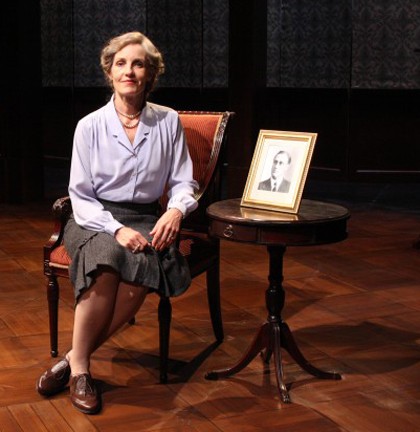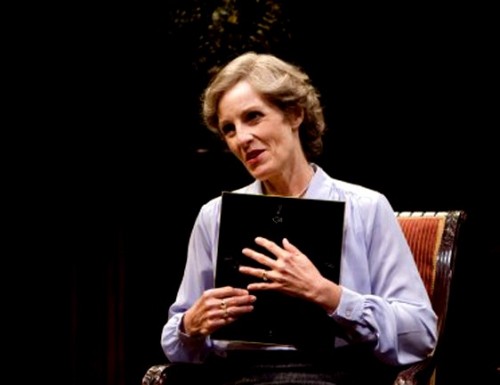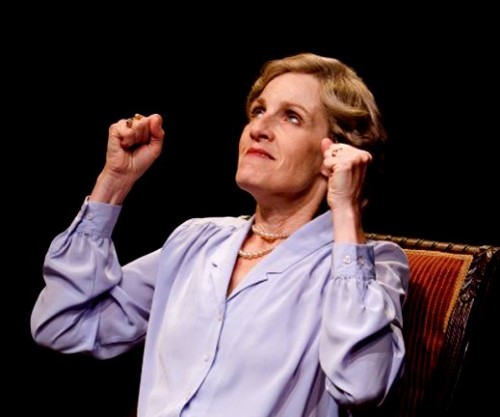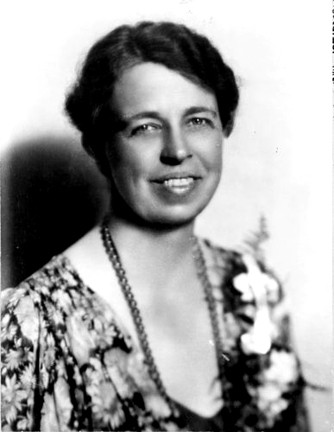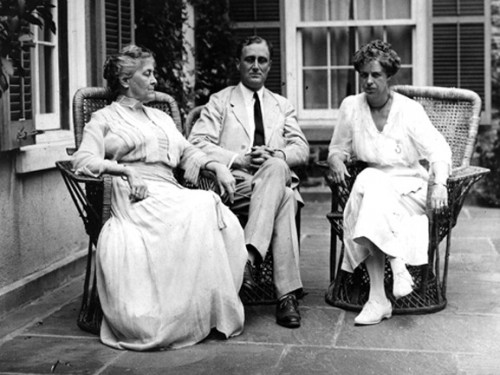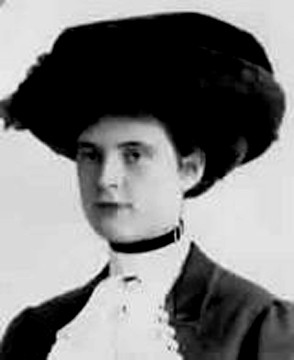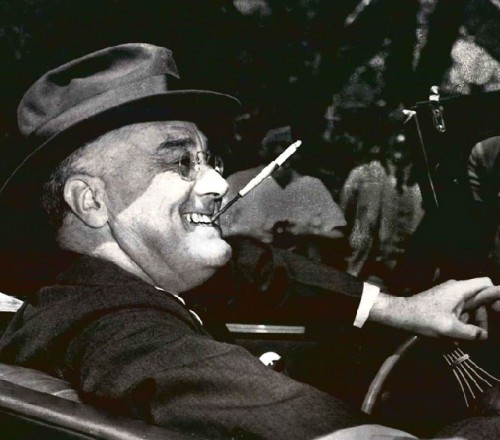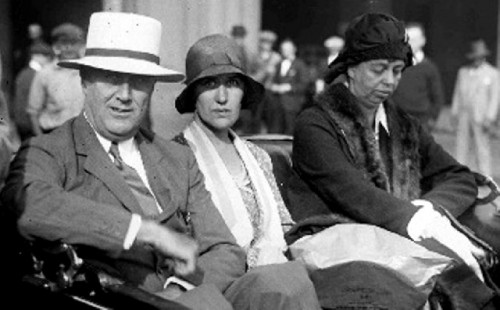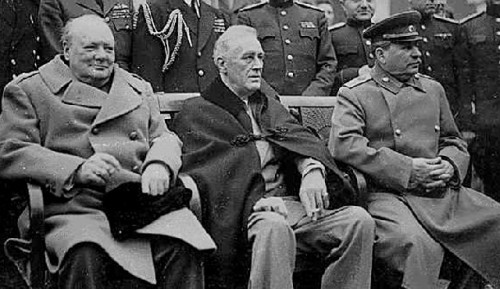Eleanor: Her Secret Journey by Rhoda Lerman at Berkshire Theatre Festival
Elizabeth Norment As Eleanor Roosevelt
By: Charles Giuliano - Aug 28, 2008
Eleanor:Her Secret Journey
By Rhoda Lerman
Starring Elizabeth Norment; Directed by Stephen Temperley; Stage Manager, Jessica Kovell; Scenic Designer, R. Michael Miller; Costume, Tracy Christensen; Lighting, Thom Weaver; Wig Master, David Lawrence; Casting director, Alan Filderman. The Berkshire Theatre Festival, August 26 through August 30. Continues September 26 through November 9.
http://www.berkshiretheatre.org/
It is a simple, somber and sparse set by R. Michael Miller for "Eleanor: Her Secret Journey" at the Berkshire Theatre Festival through November 9. There is a series of panels with ersatz William Morris wallpaper above dark wainscoting. Toward the back is a large, free standing wooden arch suggesting a door or window. But there are no windows in this oppressive, claustrophobic, dank interior. The furnishings include a desk with telephone and a comfortable chair with an end table on which is a framed photograph of Franklin Delano Roosevelt (1882-1945).
The phone rings a number of times and clearly Eleanor Roosevelt, (1884-1962) performed by Elizabeth Norment, is reluctant to answer. The time frame is the period after the death of her husband. Eleanor has left the White House and settled into her home Val-Kill on the Roosevelt estate, Hyde Park, in New York. When, eventually, she takes the call it is President Harry Truman on the line asking her to take the post of United States Delegate to the newly formed United Nations. It was a position that required Congressional approval and she served as President and Chair of the United Nations Commission on Human Rights from 1946 to 1952.
In an aside to the audience we are informed that she is reluctant to return to public life. She expresses that Truman is just using her and a link to FDR "as window dressing" for his political advantage. That Truman needs her more than she needs him. Truman was widely viewed as a political non entity when he took over at the end of World War II at the beginning of FDR's fourth term (1933-1945) in office. Roosevelt's rapidly declining health was never disclosed to the American public and it was hoped by insiders that he would see America through to the end of the war. It was left to Truman to make the decision to use the Atomic Bomb which swiftly ended the war with Japan.
Just prior to the opening of Rhoda Lerman's play, based on her novel, Hillary Rodman Clinton addressed the Democratic National Convention. The timely reference to Eleanor Roosevelt, as one of the most remarkable women in 20th century American politics, was inevitable. While it is not mentioned in the play, during the 1948 presidential race, it was suggested that the very weak Truman, widely viewed to have little or no chance against the charismatic Republican, Tom Dewey, might strengthen the ticket with Eleanor as a candidate for Vice President. When asked about it Truman replied "Why, of course, of courseÂ…What do you expect me to say to that." According to family sources she refused to be considered. In one of the most famous "whistle stop" campaigns of American history, Truman not only defeated Dewey, but is regarded as one of the greatest presidents.
While based on fact and biography it is important to clarify that this play by Lerman, with a phenomenal performance by Norment, is a work of art that uses the facts to assemble what is largely a feminist reconstruction. The play reconfigures the historical persona of Eleanor to fit the mood and inclination of a contemporary audience.
Norment provides a compelling and absorbing performance but not the Eleanor Roosevelt whom I vividly recall when she was a trustee and visiting lecturer at Brandeis University. Or what I know of her biography. This play has been highly selective to extract a thread of moments and circumstances intended to make a very specific point about her personal growth and independence. It focuses on her estrangement from a husband who cheated on her, first with Lucy Page Mercer (Ruthedford), and later, allegedly, with his long serving private secretary, Mauguerite "Missy" LeHand. We learn nothing of her role as the mother of six children. One, Franklin, died during his first year in 1909.
Having taken Truman's call, with a promise to consider the offer and get back to him, Eleanor sat in the chair and contemplated the framed photograph of her late husband. She picked it up and held it to her breast. She then placed it face down on the desk where it remained until the end of the play. When she finally called Truman, and accepted his offer to return to public life, she placed the photograph back in its original position.
The significance of this gesture with the photograph was a dramatic device to inform us that this was a play focused on her and was not about him. This was a trope of the playwright to not just downplay FDR but largely to dismiss him as a weak, privileged, womanizing, mama's boy. Particularly when compared to Lerman's evolving portrait of Eleanor as a Feminist, Labor and Civil Rights activist. Lerman conveys Franklin as an elitist and prejudiced snob. He is quoted saying to her that such and such uncouth "Hebrew," (such as Bernard Baruch a confidante of Woodrow Wilson who befriended Eleanor) or unsavory Labor leaders, are "NOKD or Not of Our Kind Dear." What is left off the table is the dark fact that FDR did little or nothing to welcome Jewish refugees fleeing Nazi Germany.
The play focuses on formative events of their relationship during the period of World War I when FDR was appointed as an Under Secretary of the Navy. As such, he went off to France when American entered the war. But was chagrined that he was not eligible to wear a uniform and instead marched off in his father's hunting attire. The script of Lerman uses every opportunity to poke at FDR so we get little or no sense of the political development of one of America's greatest and most loved presidents. The point is never made that, were it not for FDR, there would be no compelling reason for this play on Eleanor.
So, while a quite wonderful and powerful evening of theatre, upon further reflection, it was terribly skewed. One may only imagine, a generation from now, a feminist playwright giving us an evening of "Hillary."
No, this was not at all my memory of Eleanor Roosevelt whom, as an undergraduate, I was fortunate to see during her PBS broadcasts from the Spingold Theatre of Brandeis University. She had a wonderfully autocratic manner of speaking which Norment fails to evoke. Eleanor was herself a Roosevelt (fifth cousin to FDR) and niece of President Theodore Roosevelt. During those Brandeis lectures she often made reference to "My late husbandÂ…" It was always clear that her authority came from that relationship and her role as his globe trotting ambassador. Particularly after a polio like paralysis when he was stricken with fever on August 10, 1921.
It was in 1918, when he returned from France on a stretcher having come down with the Influenza which killed millions globally, that she discovered the love letters to him from her former social secretary, Lucy Mercer. Norment powerfully conveyed her torment as well as the fact that her domineering mother-in-law, Sara, adamantly forbade the divorce she sought. She threatened disinheritance and argued that it would nip in the bud Franklin's aspiring political career.
In accepting an estranged relationship this play brilliantly and effectively conveyed her liberation and increasing defiance. It was the catalyst that created the Eleanor who is remembered as one of the greatest women of her time. This is the theme and persona conveyed by a compelling but strident drama.
The couple married for love. It was Sara in fact that questioned the relationship and convinced them to hold secret their engagement for a year. Since they had six children one would assume that there was, at least initially, passion and physical attraction. In her youth Eleanor was better described as handsome than beautiful. She was not as stunning and photogenic as her cousin Alice. Eleanor knew and liked Sara first as a cousin and later, more problematically, as her mother in law.
The play delves cautiously into Eleanor's need for love. This is conveyed when a soldier departing for the front makes a pass at her. As a proper, married woman she rejected the overture but was moved by the attention. There is later a hint of affection for an aide when the couple toured the battle fields of France immediately after the surrender. What is not mentioned in this play is her great affection for Lorena Hickok that began in 1933 and continued through her early years as First Lady. She also enjoyed a close relationship with her body guard, the New York State Police sergeant, Earl Miller.
We may speculate that Eleanor was charismatic, passionate and sensual. But Norment plays her as dowdy, asexual, and excessively plain. This is accentuated by the unflattering costume of Tracy Christensen that conveys her as a kind of headmistress of a girl's boarding school. There is never a hint that, as a woman, Eleanor had needs and libido. She is conveyed as smitten with the soldier who marched off to war. Apparently he played harmonica and whistled so this production makes much of that.
What is most successful about Norment's superb performance is its many nuances. She slips in and out of a range of other characters and voices. But never lets us loose sense that it is Eleanor conveying the others in her life. She is well served by the subtle and ever changing lighting design of Thom Weaver. Her life narrative literally brightens and darkens to convey the shift of events. Would that one could also praise the uncredited sound effects. There are times when her delivery is drowned out.
Yes, this is a wonderfully dramatic play by Lerman, with a superb performance by Norment, if you are willing to ignore the facts. Or, as we say in journalism, never let the facts get in the way of a good story.

